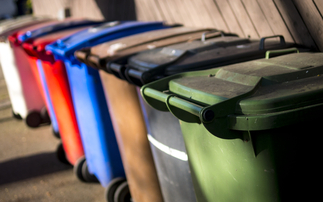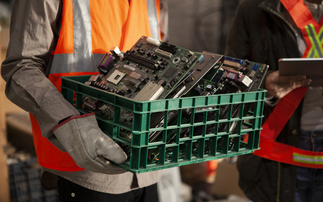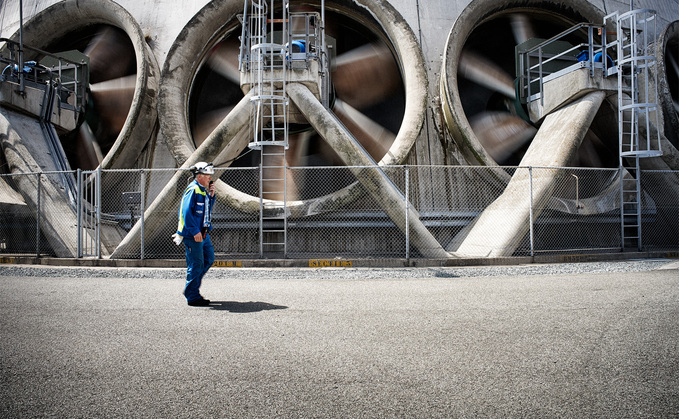
Industry Voice: Chemical recycling and mass balance are set to play a critical role in the transition to a low-carbon economy, writes Dow Packaging, Peter Sandkuehler
As countries around the world continue to witness extreme weather events and climate change, along with concerning levels of plastic pollution and dwindling resources, the need for action is becoming ever more urgent by the day. Our industry is at the forefront of the issue, with a responsibility to drive the change needed to address climate change and the plastic waste crisis, which pose an existential threat to our planet. Plastics are essential to our society; we rely on their performance, benefits and convenience and their use has revolutionised our lives, from hygienic food packaging to safer medical supplies, lighter cars and more durable construction materials. But the affordability of plastic products has resulted in significant plastic use which has not been matched by an equivalently efficient end of life management process.
It is clear that something must be done to reduce fossil based raw materials and associated carbon emissions and implement an effective circular economy within our industry. However, the industry cannot face this challenge alone; we must work alongside government on the formation of a workable circular economy. Governments are already beginning to prioritise the issue in their net zero strategies. Tackling plastic pollution is a key element of the European Green Deal, a roadmap which outlines the EU's ambition to reach net zero by 2050.
As part of the Green Deal, the plastic value chains face bolder regulations on circularity for several end-markets such as packaging and automotive e.g. the Packaging and Packaging Waste Regulation (PPWR) and End of Life Vehicle Directive (ELV).
Within packaging, under the latest European Commission proposal, EU member states must reduce packaging waste per capita by 15 per cent by 2040, in comparison with 2018 levels. Additionally, the following conditions are proposed with a 2030 deadline:
- Mandatory recyclability for all packaging based on design for recycling criteria.
- Mandatory recycled content targets for plastic packaging (differing targets with a 2030 and 2040 deadline).
- Mandatory eco-modulated packaging Extended Producer Responsibility fees based on recyclability for all packaging.
At Dow, we see these proposed changes as positive, reflecting a sensible way forward for the industry. Through our own "Transform the Waste" strategy, we have committed to deliver globally three million metric tons per year of circular and renewable solutions by 2030, and we are investing in new technologies to produce circular products from plastic waste to meet rising market demand.
However, in order to reach the recycled content targets outlined in the PPWR and the ELV Directive, the plastics industry and value chain need policymakers to introduce the right framework to truly enable the transition to a circular economy, where all plastics recycling technologies are recognised and scaled up significantly. This will be essential for an effective transition to a sustainable business model.
Why should we invest in chemical recycling?
When you think about recycling, you're probably picturing mechanical recycling. This is the most commonly used process by which plastic waste is turned into new products, without the molecular structure of the material being significantly altered.
Mechanical recycling is critical and accounts for the majority of recycling volumes in Europe. As such, Dow is working with and investing in mechanical recycling companies like Valoregen. The process uses less energy than other forms of recycling, but it does have limitations. For example, highly regulated plastics such as those used in food packaging - approximately nine million tons of polyethylene and polypropylene are used in food packaging in the EU alone - cannot currently be produced by mechanical recycling at scale due to quality, performance and safety restrictions.
To enable broader use of recycled plastic, Dow is investing in innovative companies, including Mura Technology, Valoregen, and Plastogaz, to scale up a technology called chemical recycling. Also known as advanced recycling, this is a complementary technology to mechanical recycling. It allows plastics which were previously difficult to recycle mechanically to be recycled back into the initial raw material (oil or gas), from which new plastic is made. This means the recycled plastic has the same performance and safety characteristics as virgin plastics. By investing in chemical recycling, alongside mechanical recycling, we can therefore help improve overall plastics recycling rates and achieve recycled content targets in this sector. Recent Life Cycle Assessment data, produced by the WMG research group at the University of Warwick, found that every ton of plastic that is chemically recycled prevents nearly three tons of CO2 being released through incineration.
Alongside our partner Mura Technology, we are planning and building multiple chemical recycling facilities in the US and Europe, adding as much as 600 kilotons of recycling capacity by 2030. Additionally, Mura is opening a plant in Teesside in the UK later this year. A recent report from the European Commission's Joint Research Centre shows that Mura's specific technology - HydroPRS - has a global warming potential that is circa 50 per cent lower than the other chemical recycling process, pyrolysis.
We still need to go further to expand chemical recycling to meet the recycled content targets, but to reach policy targets and market needs on recycled plastics, we must also have legal recognition of mass balance accounting.
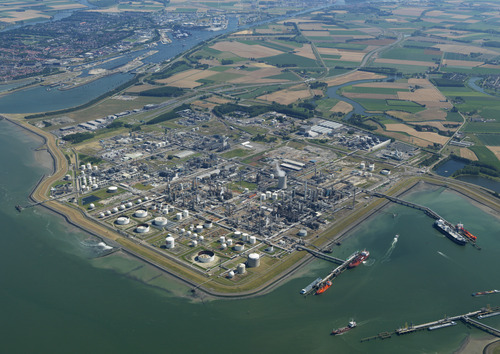
What is mass balance accounting and why do we need it?
Mass balance accounting is, in short, a method which monitors the level of a sustainable raw material in a product by examining all inputs and outputs as they move through the production and supply chain. Let's start with what you may recognise - the mass balance models which already exist. For instance, the electricity we purchase is a combination of solar or wind powered electricity AND traditional oil or coal-based electricity. This combination is unavoidable as we transition from fossil-based energy to renewable energy.
The Renewable Energy Certificates (REC), which are used in the electricity grid, are based on mass balance accounting. These allow industry and consumers to incentivise electricity producers to make the switch to renewable sources of energy. As renewable energy supply expands, the solar and wind powered electricity that goes into the grid will grow and the coal and oil-based electricity will diminish.
A mass balance approach has many benefits. In the plastics industry, it addresses concerns from brand owners about recycled content at product level for food contact applications, and also allows credible product claims to be communicated to consumers, as the audited process enables traceability throughout the supply chain. This empowers consumers to drive a change in the packaging value chain, preventing greenwashing and allowing the scale-up of circular solutions.
As importantly, this method encourages businesses to replace fossil, crude oil based feedstocks with plastic waste alternatives, enabling the transition to a circular economy at pace while keeping products affordable to consumers. By allowing recycled plastic use in all final products including food packaging, where existing recycling technologies have limitations, mass balance accounting can help the industry address consumers' rising demand for recycled products.
What are the dangers of failing to recognise mass balance accounting?
If we want to tackle the plastics problem effectively, mass balance accounting is an essential piece of the puzzle.
The risks of not recognising this process are two-fold. Firstly, brands and retailers will struggle to meet legal requirements on recycled content and consumers' expectations of meaningful recycled content targets across Europe. Dow supports mass balance accounting as a way to deliver credible product claims to consumers, helping them to make informed decisions at point of sale.
Secondly, building up chemical recycling plants to turn plastic waste into oil and gas for new recycled plastics comes with a cost. The smaller the proportion of the input that we can count as recycled content, the more expensive the circular products become, impacting the prices for consumers. This could result in lower consumer demand for recycled products at a time when it's imperative that consumers' interest in sustainable products is not lost.
At Dow, we believe that acceptance of mass balance accounting is the only viable means of accounting for chemically recycled content if we want to drastically scale up circular solutions.
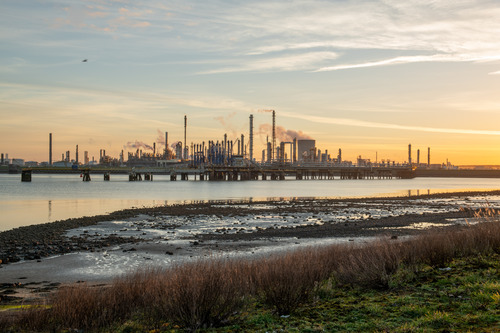
The fundamental role of mass balance accounting in the circular transition
There has never been a more vital time to acknowledge the role that chemical recycling and mass balance must play in the transition to a circular, low-carbon economy.
Within the plastics and chemical industries, these processes would facilitate the replacement of fossil feedstocks and help in the delivery of products with credited recycled content to consumers.
There is currently no alternative to chemical recycling in specific plastic products such as food packaging, where existing recycling technologies meet their limits. It is only through a mass balance accounting system that we can enable the expansion of chemical recycling required, and consequently achieve the reduction of fossil fuels required by industry to meet its net zero ambition by 2050.
The plastics industry has welcomed the clear direction set by the European Green Deal, and Dow is proud to be playing a key role in supporting innovation in the sector.
Now, the onus is on policymakers to introduce policies which back an affordable scale-up of circular business models so that the industry can innovate further as needed, and so that Europe is able to leverage every opportunity to work towards its net zero goals.
Peter Sandkuehler is director of sustainability EMEA at Dow Packaging and Specialty Plastics
You can watch a video discussing the necessity of chemical recycling and mass balance accounting on Dow's YouTube channel.



